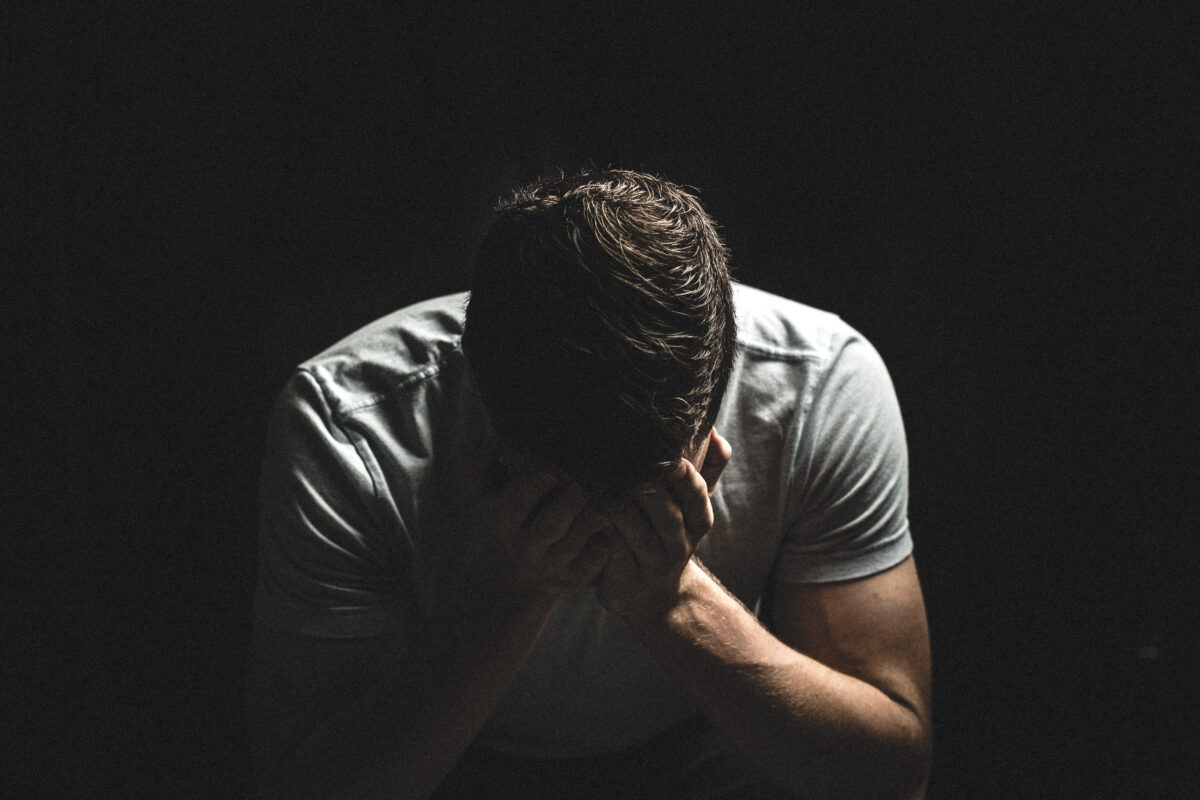Just when I thought there was something wrong with me for sitting on the edge of my bed and staring blankly into the bleakness of my bedroom 20 minutes on the daily; turns out I’m all good!
That’s right, ladies and gentlemen, you may now cry with joy because sadness is officially the key to happiness. Yep, you read that right. The source of our unlikely salvation? Romantic poets and German scientists. Plus a healthy dollop of Brock Bastian, an Australian psychologist and author of the 2018 book, The Other Side Of Happiness: Embracing A More Fearless Approach To Living.
Before we get into the data, let’s dismiss a few myths. First of all, as counter intuitive as it sounds, it makes sense that being sad is a key component of a happy life. Think about it: the most crushing aspects of depression are apathy and lethargy. But when you are sad you are not indifferent to something: you are upset or pissed off about it. Because you care. And this is a good sign of a mentally healthy person, because there are a lot of things in life that should make you sad. It’s when you stop giving a sh*t that something’s wrong.
what you call a nervous breakdown i call oops, accidentally saw things as they are
— so sad today (@sosadtoday) June 25, 2018
So, could learning to embrace “being sad,” cure the world’s growing rates of depression? According to Brock Bastian, stigma around negative emotions is actually one of the causes of depression. If people were able to see their bouts of melancholy as the inevitable flip-side to their moments of joy—and recognise this interplay as an essential part of a well lived life—rates of depression (in those without chemical imbalances at play) ought to decrease.
This is what Keats was getting at in his “Ode on Melancholy.” The Romantics believed that the fleeting moments of ecstasy we all experience on the pokies/in our love lives/seven tequila’s down in a night-club, “Dwell(s) with beauty—beauty that must die…” because, “Fancy cannot cheat so well as she is fam’d to do.” In other words: we all like to think it’s possible—even mandatory—that if we make good ‘life choices’ we will be able to sustain our happiness.
Clinical psychologists now agree that this is false. Indeed, the key to maximising your happiness is accepting that no matter how “good you are at life,” you aren’t going to be happy 24/7, and that feeling sad doesn’t (necessarily) mean you are failing at life. It just means you are human.
small talk requires 100% more energy than making out
— so sad today (@sosadtoday) August 15, 2018
People are less likely to experience clinical depression in societies that understand this. As reported by Quartz, “In China and Japan, both negative and positive emotions are considered an essential part of life. Sadness is not a hindrance to experiencing positive emotions and—unlike in Western society—there isn’t a constant pressure to be joyful.”
“A person living in a Western country is four to 10 times more likely to experience clinical depression or anxiety in a lifetime than an individual living in an Eastern culture.”
How this societal expectation to seek happiness affects people was tested last year by the psychologist Brock Bastian. He divided 116 college students into three groups to perform an impossible anagram task. The first group was told to expect failure. The second group was not, and completed the test in a “happy room” with motivational posters and cheerful Post-it notes. The third group was given a neutral room.
“In the very temple of Delight, / Veil’d Melancholy has her sovran shrine,” (Keats, Ode on Melancholy)
As reported by Quartz, “After completing the task, all the participants took a worry test that measured their responses to failing the anagram task, and filled out a questionnaire designed to evaluate whether societal expectations to be happy affected how they processed negative emotions. They also took a test about their emotional state at that time.”
After this, Bastian found that students in the “happy room” worried a lot more about their failure than the people in the other two rooms. “The idea is that when people find themselves in a context where happiness is highly valued, it sets up a sense of pressure that they should feel that way,” Bastian told Quartz. Then, when they experience failure, they “ruminate about why they are not feeling the way they think they should be feeling,” further worsening their state of mind.
Another benefit of embracing sadness is that painful times instil us with attributes that make us happier in the long term. It is during adversity that we connect most closely with people, and also where we build our resilience, Bastian told Quartz.
life’s a bitch and then you think it’s maybe going to be okay for a sec and then it’s a bitch again
— so sad today (@sosadtoday) August 8, 2018
At the same time, he warned people not to take his findings literally. “The point is not that we should try and be sadder in life… (It) is that when we try and avoid sadness, see it as a problem, and strive for endless happiness, we are in fact not very happy and, therefore, cannot enjoy the benefits of true happiness.” Basically: it’s better to aim for “well adjusted” than happy.
RELATED: Beer Is Better For You Than Self Help Books, Say Drunk Scientists
